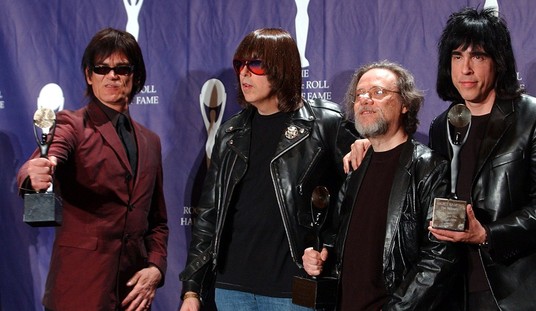It seems to be a growing trend that motorists are shopping around for gas stations which offer ethanol free gas, even if they have to pay a bit more per gallon to get it. Distributors are noticing, and more and more stations are featuring this option. (You can find a list of such stations near you here.) I noticed this myself during a recent trip in New York, and now it’s showing up further south as well.
Arthur Wyckoff III has sworn off alcohol — in his gasoline.
“I make it a point, before I get real low, to make it to a gas station that has 100 percent gas,” the Chickamauga, Ga., man said Thursday morning as he fueled his Toyota Corolla at the Sav-A-Ton on LaFayette Road in Fort Oglethorpe.
The gas station is one of a number in the Chattanooga area that advertise gas free of ethanol. The grain alcohol additive — usually derived from corn — makes up 10 percent of almost all gasoline sold at the pump around the United States.
“The ethanol, it just messes up your engine,” Wyckoff said.
The repeating theme among customers is repeated here. Drivers have become more and more aware that not only is the higher corn gas bad for engine components, it actually costs you money by cutting down on your mileage.
Pure gas means better mpg
There doesn’t seem to be any dispute that pure gasoline delivers better mileage than gas that’s part ethanol.
Mileage suffers by 3 to 4 percent using E10, or gas that’s up to 10 percent ethanol, according to the U.S. Environmental Protection Agency’s Office of Transportation and Air Quality.
But one factor which some auto shoppers may not be aware of is that the industry is aware of these dangers and they aren’t going to honor warranties on vehicles guzzling the latest 15% ethanol blend unless you’ve got a brand new car or one that is specifically rated as a “flex fuel vehicle.”
AAA and a number of automakers came out swinging against E15, warning that the extra ethanol could corrode plastic, rubber and metal parts in cars not built to handle it.
Five manufacturers — BMW, Chrysler, Nissan, Toyota and Volkswagen — stated their warranties will not cover E15 claims, the automobile association warned. And eight others — GM, Ford, Honda, Hyundai, Kia, Mazda, Mercedes-Benz and Volvo — said that E15 may void warranties.
“Research to date raises serious concerns that E15 … could cause accelerated engine wear and failure, fuel system damage and other problems such as false ‘check engine’ lights,” AAA stated. “The potential damage could result in costly repairs for unsuspecting consumers. This is especially tough for most motorists given that only about 40 percent of Americans have enough in savings to afford a major auto repair.”
We already knew that high levels of ethanol will destroy boat engines and some smaller engines such as those in your lawnmower. But Consumer Reports confirmed back in 2011 that buyer beware. Auto makers won’t pay for damage caused by E-15.
The new orange label displays “E15” in large type and states that the fuel is for use only in 2001 or newer model-year vehicles or flex-fuel vehicles, and that it is illegal to use it in other vehicles or in power equipment such as lawnmowers.
In response to the release of the labels, nine automakers—including Chrysler, General Motors, and Toyota—wasted no time writing letters to Congress criticizing the proposal and noting that they will not honor warranties for older cars running on E15. The automakers say they are concerned about the effects of E15 on engines, fuel pumps, and other fuel-system components in cars that were not designed for it. (Learn more about ethanol: “The great ethanol debate.”)
In January, the EPA approved the use of E15 in all cars from the 2001 model year on. The only cars that would be warranted for use of the new fuel are flex-fuel vehicles, which are designed to use concentrations of ethanol up to 85 percent (E85).
Keep in mind that you’re paying for this though your tax dollars because of subsidies which continue to keep the “renewable fuels” push not only afloat, but mandatory in most cases. And in exchange for your big hearted investment, unless you do your research, you can see your boat engine, your lawnmower and even your family car producing expensive repair bills. And unless your car is one of the new ones which “qualifies” by way of design, your warranty may be void.
For now – thanks to Uncle Sugar – ethanol free gas is going to cost a bit more at the pump. But the EPA shows no signs of relenting, and until the President who put the current policymakers in place is out of office there’s no relief in sight. It may be worth the extra investment to put real gas in your tank just to avoid the downstream costs later.








Join the conversation as a VIP Member